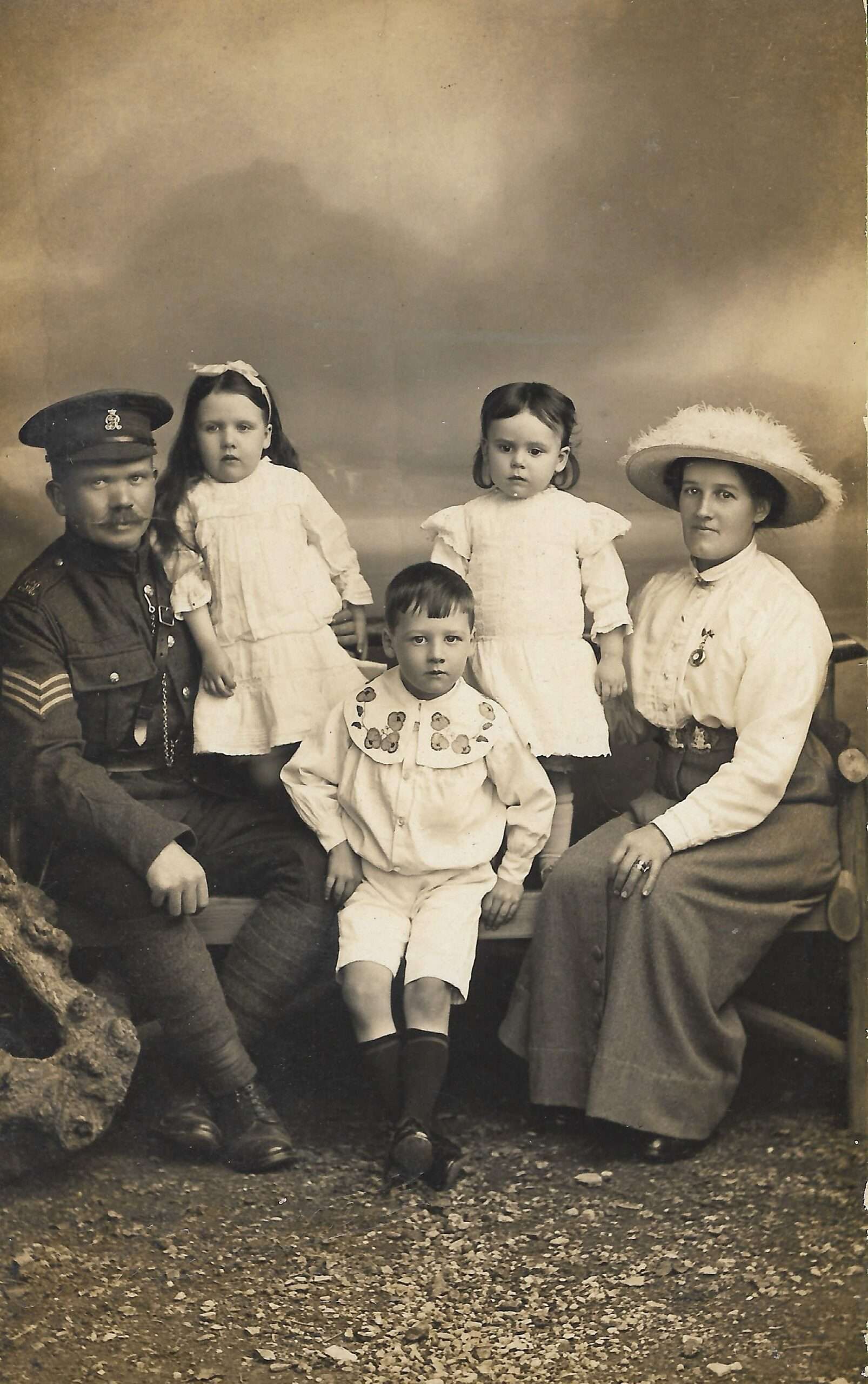Albert Luxton died five years before I was born. When I was young, the 74 years of his life seemed to represent reasonable longevity, now he seems a man whose life was too short. He is a man I should have liked to have known.
Each Christmas and Easter, I go to Aller churchyard to pay my respects to him and to my my great grandmother. It is a good place to await the resurrection of the last day, an ancient site, Guthrun, the Danish king was baptised here after losing the battle of Ethandun to Alfred in 878.
A professional soldier, the Roll of Honour website gives brief details of my great grandfather, but the details give a few clues of the stories behind the words:
Served and returned. Born 1881, in Aller, Langport, Somerset. Attested 29 July 1899 at Taunton, aged 18 years 8 months, served as Private 3313, 15th Hussars. Labourer before enlisting. Unmarried. Height 5 feet 5 inches, weight 116lbs, chest 34 inches, fresh complexion, grey eyes, brown hair; religious denomination Church of England. Re-enlisted 23 August 1911 in Section “D”, 19th Hussars. Son of Alfred and Betsy Luxton, of Mayfield Cottage, Aller, Langport, Somerset. Married Emily Bond Woods at the parish church Aller, Langport, 19 October 1910; they had 3 children
Enlisting in the 15th Hussars, a cavalry regiment, in July 1899 would have meant an immediate overseas posting. The British Cavalry regiments website says:
In 1882, after an absence abroad of twelve years, the Regiment were stationed in Aldershot. They subsequently marched to the Midlands (1885), and then to Scotland. (Amongst other duties, the Regiment provided a Royal Escort for Queen Victoria in Glasgow in 1888). And in 1889 the Regiment moved to Ireland, where they were to enjoy seven years of peace. The Regiment returned to Southern England in 1896 and took part in Queen Victoria’s Diamond Jubilee celebrations (1897).
In 1899 the Regiment embarked for India once more. They were stationed at Lucknow, and then Meerut, and remained in India for the next ten years.
Albert’s first spell of military service would appear to have been spent in India, with a regiment that had not seen military action for decades. Perhaps they would have regarded themselves as fortunate to have been posted to India and not to South Africa, to face the Boers in a bitter conflict.
His absence from England is perhaps an explanation as to why he did not marry until he was twenty-nine. When he was married in 1910, his occupation on the marriage certificate was given as ‘soldier,’ and he was still serving with the 15th Hussars at the time of the census in April 1911, when he and Emily were living at Aldershot.
Did he leave the army intending to live a civilian life in Somerset? The break in military service cannot have lasted more than a matter of weeks. He re-enlisted, to serve with the 19th Hussars, and served through the duration of the First World War, the regiment participating in numerous on the Western Front actions in Flanders and on the Somme, both as cavalry and as foot soldiers.
The family story of what happened after the end of the First World War was unclear. Family history says that he went to Ireland to serve with the British forces, that he had guarded prisoners. There were fears that he might have served with the Black and Tans, there were no records of the 19th Hussars being posted to Ireland, in fact, they were disbanded in June 1921.
There was a sense of delight when I discovered that he had become nothing more sinister than a military policeman, that he had become Sergeant Luxton of the Military Provost Staff Corps.
For the first time today, I saw a photograph of him in his military police uniform. Taken in 1919, it seems more a picture of a man from the Edwardian golden age than of someone who had been through the horrors of the Great War.


